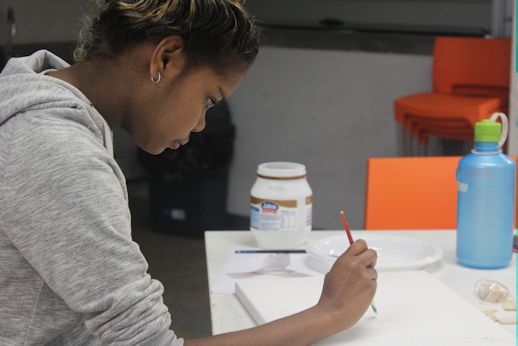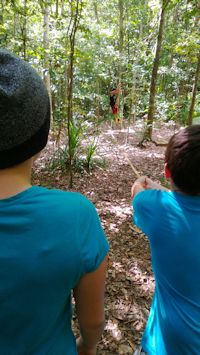




What are you proud of?
What do you enjoy doing now or did you enjoy in the past?
What are your dreams for the future? (in five years, in ten years etc)
What are the most important priorities for you right now?
What would you like to know more about? • When do you work best?
Do you like working with others or prefer working alone?
Do you like working on a computer?
When you learn something new do you prefer to read instructions, have someone tell you how to do it, have someone show you how to do it or another way?
Holistic: the plan reflects the specific needs and support requirements of the young person and this information is shared with relevant support staff
Active: the IEP is a working document and is regularly updated according to progress reviews and changes in circumstances
Recognises previous experience: the plan takes account of previous experience and learning
SMART goals: the plan includes the five elements of SMART goal setting
Challenge: Learning targets and time frames are realistic but also challenge young people and keep them focused on achieving milestones
Pathways: The plan maps the entire pathway from the starting point to the achievement of short and long term goals
Scheduling: appropriate time is allocated to complete the plan
Cross-referenced: the course plans and IEPs reflect each other
To engagement through TAFE and vocational training, school-based traineeships, apprenticeships or other employment
From remote communities towards a successful introduction to boarding school [Cooktown Campus] or
Back to other styles of schooling.

Wellbeing,
Learning,
And pathways.
Our behaviour focus is on the relationships in our school community. We disapprove of inconsiderate behaviour and want to assist young people to understand that what they do impacts on others. Poor behaviour is not tolerated at Holy Spirit College (HSC) and procedures are developed to ensure that young people can learn and participate free from harassment and disturbance. Our system is grounded in applied behaviour analysis, and is the basis of our behaviour expectations. “Traditional” approaches to behaviour usually focus on young people’s problem behaviour, whereas HSC staff focus on the needs that students are trying to meet by using any inappropriate behaviour. “Traditional” approaches focus on stopping problem behaviour through the use of punishment – often consequences that are undesirable to the young person – whereas at HSC we focus on actively teaching the young person replacement behaviours that allow them to get their needs met in more efficient and socially acceptable ways. “Traditional” approaches often leave alterations to the teaching and learning environment out of the equation, assuming that the young person must change in order to accommodate the environment. In contrast, at HSC we also focus on changing the behaviour of adults, and on building environments that make the learning of replacement behaviours more effective and durable.




